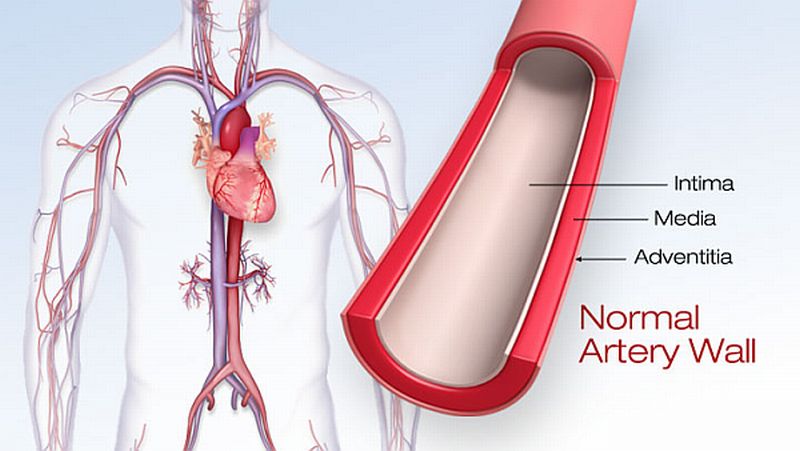Ebola disease is one of the most discussed topic these days. Vaccines or specific treatment for the deadly Ebola virus is not yet found. And therefore, medical expert emphasize on taking necessary precautions.
Read MoreTag: healthy living
Supplements do not Enhance an Individual’s Cognitive Performance: Balanced Diet is the Key
For long, B group vitamins, especially B6, B12 and folic acid has been considered playing a pivotal role in keeping the human’s brain healthy. They are known to boost memory and avert risk of disease such as Alzheimer’s disease. Because of these benefits, the vitamin B has become a part of a healthy diet.
Read MoreHeart Disease starts from Stomach: Red Meat hardens the Arteries
Though red meat is one of the richest source of a powerful antioxidant called, lipoic acid, apart from harboring other essentials like iron, creatine, minerals and vitamins, findings from various studies suggest that red meat consumption is linked to significant health risks such as an increased chance of developing cardiovascular disease and even bowel cancer.
Read MoreHigh Milk Consumption leads to Greater Risk of Fractures: Fat triggers Inflammation
Importance of milk and other dairy products are long known to everyone. They are one of the richest sources of Calcium and contain Vitamin D which together plays an imperative role in strengthening human bones and teeth, thus, reducing the risk of osteoporosis and bone fractures. Milk also contains many other essential nutrients. However, a recent study challenges the health benefits of milk intake and on the contrary, links high milk consumption with higher risk of fractures and early mortality.
Read MoreCharging Gadget in Bedroom leads to Weight Gain: Light from Devices Disrupt Metabolism during Sleep
Gadgets have made our lives convenient, but at the same time, safety issues have thwarted their ease. Experts are still debating & studying whether radio wavelengths emitted from cellular phone causes brain cancer or not. Now another team of researchers has discovered that charging cell phones or tablets in the bedroom, during night can lead to weight gain.
Read MoreHigh Sugary Drinks lead to Poor Memory: Neuroinflammation
High intake of sugar-sweetened beverages (containing high sugar or high fructose corn syrup content) are responsible for obesity, diabetes, coronary heart disease and other disorders. But recently, experts have found that these beverages when consumed (especially in adolescent age) can lead to poor memory and learning skills.
Read MoreMutant Gene to Control Weight Gain: No More Diet Plans
Good news for all the folks who often fail to resist the tempting calorie loaded mouth watering food and in turn keep gaining weight. According to a latest research, scientists very soon will create a pill that can keep a check on individual weight without having to sacrifice on favorite foods like cakes, burger, pizza and ice cream.
Read MoreMicroscopic Organism controls Human Mind: Manipulative Microbes
Lack of strong willpower in us is to be blamed for not able to follow a strict diet and an exercise regime regularly. Along with this, a bacterium that resides in our gut too is responsible for not performing the action on regular basis. According to a new research, bacteria residing in our gut also play a significant role in altering our appetite and mood, making us succumb to consume as per their requirement and slowly leading us towards obesity and other diseases.
Read MoreSleep Deprivation leads to Memory Errors: Getting Brainwashed
We already know the importance of a good night’s sleep. Taking around 8 hours of sound sleep is considered essential for the body, as it is the time when the brain gets rid of its toxins. But in today’s fast paced life, people often have to give up on their sleep to catch up with other work. This lack of sleep has been already reported as a public health epidemic by the Centers for Disease Control and Prevention.
Read MoreRotten-egg smell of Farts helps in attenuating Cell Damage: Healing powers of the putrid-smelling
We may not really appreciate someone releasing a fart publicly, but experts from the University of Exeter, suggests that these stinky farts potentially offer great health benefits. Researchers say that hydrogen sulfide gas found in human flatulence and in the foul smell of rotten eggs might be helpful in attenuating cell damage caused by certain diseases. However, one should be careful as the gas in large quantity can be fatal.
Read MoreOdor Receptors in Skin Cells would facilitate Healing of Wounds: Smelling Therapy
After the nose and lungs, experts have found odor receptors (similar to one in the nose), present in skin cells and thus enabling our skin to sense different odors and surprisingly these help in the speedy healing of wounds. Researchers have found nearly 350 distinct varieties of olfactory receptors in the human nose. These receptors detect different odors and begin a signaling process which sends messages to the brain. Apart from nose, 150 olfactory receptors are also located in other internal tissues as heart, gut and liver. Using these receptors,…
Read MoreAntioxidants cannot shield against Cancer: Might accelerate Tumors
Many of us believe that food rich in antioxidants or taking antioxidant supplements is essential for maintaining a healthy life and prevents diseases like cancer, coronary heart disease and altitude sickness. A scientist from Cold Spring Harbor Laboratory and a Chicago colleague has rebutted this popular belief. They propose that a diet rich in antioxidants or antioxidant pills might not be beneficial in shielding against cancer.
Read MoreBack Pain does not Link to the Weather Conditions: Posture is to be blamed
Australian researchers have come up with a study that has exploded the stereotypical myth of the reason behind the lower back pain. Till now temperature, humidity, air pressure and wind direction have been blamed for causing the lower back pain in people. However, the team of researchers has rebutted this external reason. As per WHO, nearly 33% of the world’s population suffer from lower back pain and people in huge number blame weather condition for the discomfort in the respective bodies. Initial studies showed that extreme weather conditions altered the…
Read MoreGenes Too Influences Will Power: Low Warrior Gene means Poor Self-control
To achieve a goal in life or to live in a society, humans have to exercise will power, to avoid negative thoughts and temptations that can drag them to a wrong direction. Will power is one of the human strength, which like a muscle can be exercised, but genes can also influence it.
Read MoreAspirin an Antidote for Pancreatic Cancer: Anti-inflammatory Properties might Reduce the Risk
According to a research conducted by Yale Cancer Center and Yale School of Public Health, regular consumption of aspirin can almost cut half an individual’s risk of developing pancreatic cancer. Researchers found that individuals, who took low dose aspirin for years, had reduced chances of being diagnosed with pancreatic cancer.
Read More














